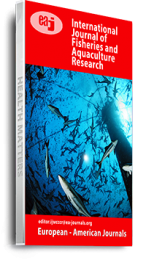The study investigated socioeconomic characteristics, aquacultural practices and constraints among smallholder fish farmers in the study location of Bo City, Southern Sierra Leone. The present study employed a survey research design. The smallholder farmers who were growing food for themselves, for sale, and for consumption by others as well as those who were primarily growing it for the market were each given 40 questionnaires in total. The results revealed that most of the respondents were male (90.0%), married (60.0%), lacked training in fish farming (57.5%) and the household income of most (60.0%) ranged from NLe600-NLe1,000. The farmers mostly opined low fish farming experience (70.0%), Semi-intensive fish farming (67.5%), low aquaculture development (57.5%), predominantly seasonal fish pond irrigation (77.5%). All of the respondents’ view fish farming as an economically viable enterprise as well as a profitable (87.5%) entity. The mean rank of constraints was significantly (p ≤ 0.006) differed among fish farmers. The key fish farming constraints included culturing fish, fish feed in culturing fish, less interest, fewer fish farmers, high inputs, high cost of fish pond construction and intensive capital investment that could be exploited for improved productivity. The outcomes of these recent studies imply that fish farmers should receive training and funding for their operations to improve their competitiveness in their smallholder fish businesses as well as in the local and international aquaculture industries. Also, the governments and other practitioner authorities ought to implement policies and initiatives that would support fish farming activities, further research development in aquaculture, the development of the nation, and the fish farmers themselves.
Keywords: Bo city, Sierra Leone, fish farming constraints, household consumption, smallholder aquaculture

